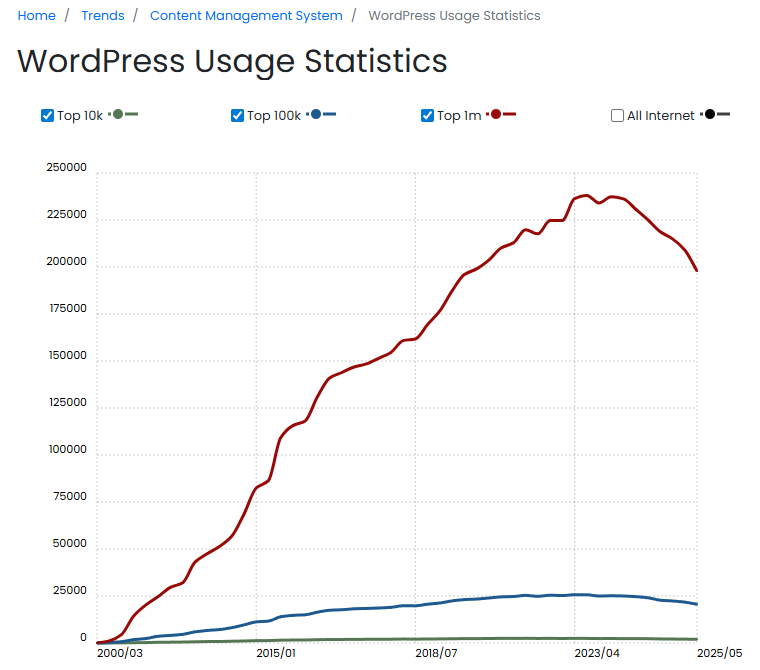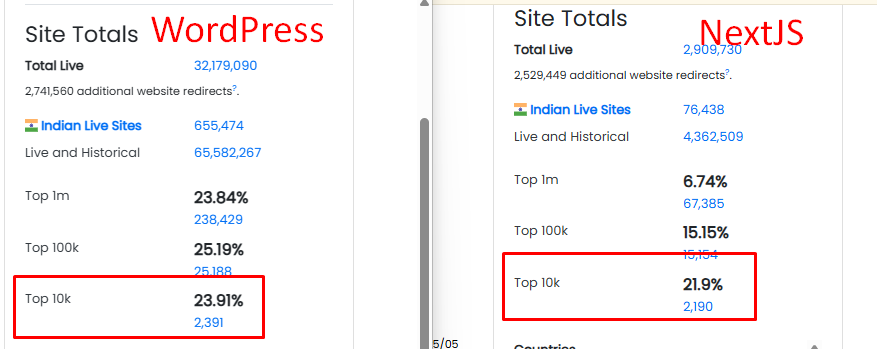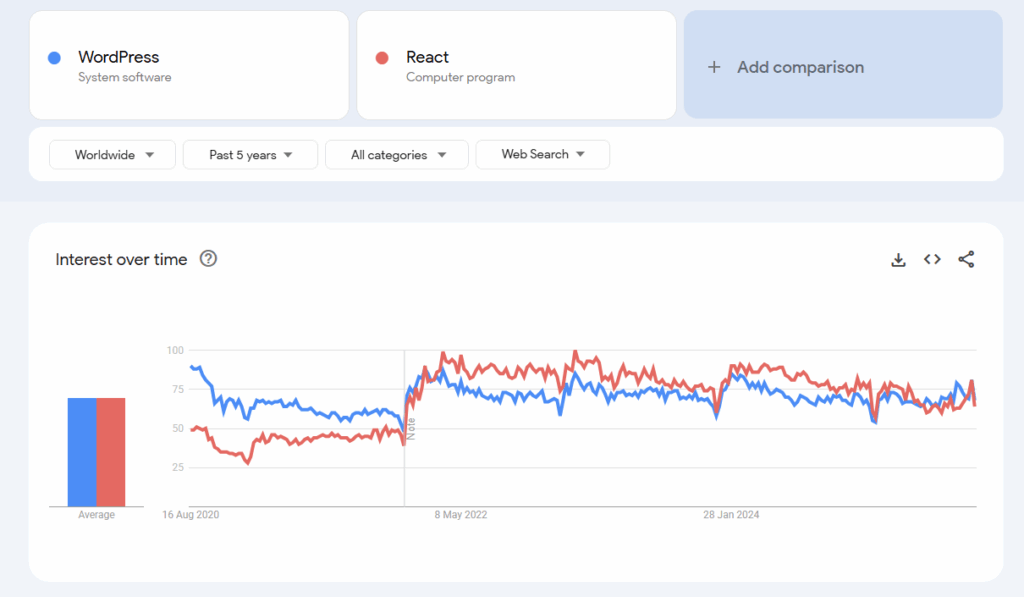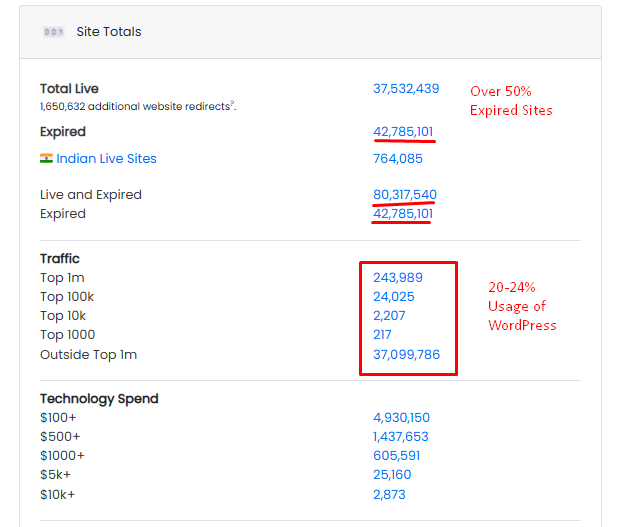
WordPress powers 43% of Internet, NO, the correct number is around 24%. Here’s the answer to your How and Why’s :
Pick any top website today, and chances are it’s not running on WordPress. Back in 2015, the trend was quite the opposite, so what exactly happened ?
In 2025, WordPress remains extremely popular—just not where it matters most. It dominates among non-commercial sites, hobby projects, and personal blogs—the kinds of sites that don’t directly do business or generate revenue. And that’s exactly my point.
WordPress proudly claims to power 43% of all websites using a CMS, but how many of those are truly impactful, high-traffic, or business-driven? The reality is that because WordPress is free—and makes it easy to host countless personal blogs—its usage statistics are skewed. The numbers may be big, but their real-world business relevance is far smaller.
As someone who is closely monitoring latest trends in Web, the fact of the matter is large companies are ditching WordPress, they no longer consider WordPress as a contender in creating their sites. It offers lesser security, lesser scalability and lesser flexibility than existing technologies.
While the WordPress Usage is steadily declining, the below graph on WordPress usage does not present a true picture. This is also closely connected to economic trends and disrupting factors as LLM’s & ChatGPT.

the above does not paint a true picture, let us look at below picture to in the context of the article.

Last year I wrote an article that how NextJS is eating into WordPress’s share and does not even count as a CMS. So while WordPress can increase its percentage in CMS the web landscape is changing, people are no longer using CMS to run websites. So, WordPress’s share keeps on increasing in CMS websites but people are slowly turning to other tools for publishing their sites.
The real threat to WordPress has always been NextJS. There are several Micro-SAAS which today are challenging the WordPres ecosystem.
React as a search term today is more popular than WordPress.

More than what meets the eye :
After I wrote this article the next update of statistics have really shown new numbers. In a span of about 2 months from the previous imge to this one, 15m new sites from WordPress were added, more than half of WordPress sites are expired. This is so much that I feel that there are bots who are creating these random sites as the number of sites under 100k keep on declining and same with number of sites using WordPRess uner 1k keep on declining.

Unfortunately, I could not compare NextJS statistics as there are no longer statistics shown for the Technology. The #1 challenger to WordPress is NextJS and it is already Winning.
WordPress isn’t dying, but it is fading into irrelevance. Counting abandoned blogs and hobby sites as “market share” is misleading at best. The truth is, serious businesses are choosing modern frameworks, headless CMSs, and AI-driven tools that deliver scalability, security, and performance WordPress simply can’t match. In 2025, WordPress may still boast the numbers—but in the arenas that matter, it’s already been benched.

